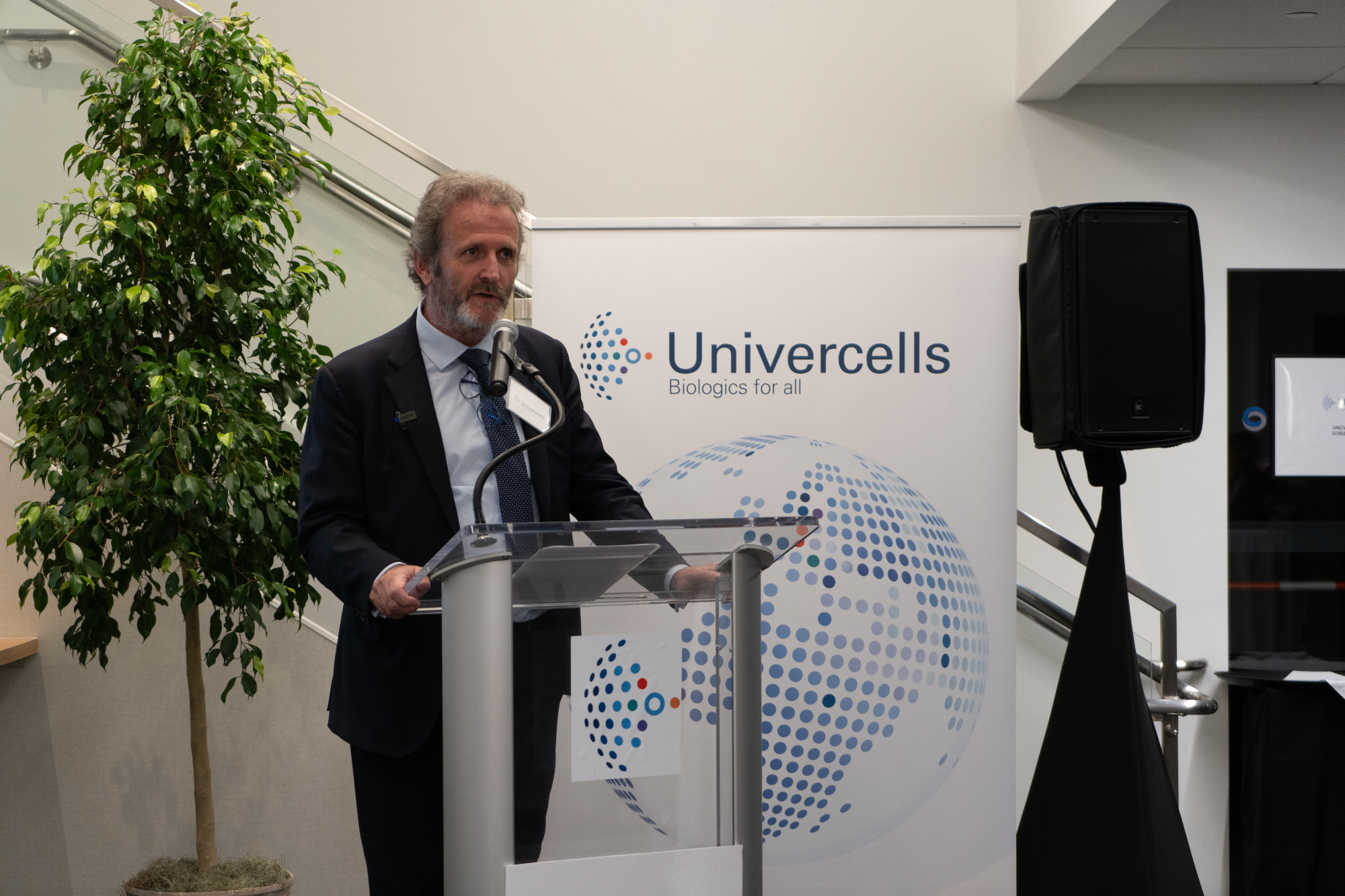At the 2023 Grand Challenges Annual Meeting, Bill Gates, Co-chair of the Bill & Melinda Gates Foundation, announced new investments to advance access to mRNA research and vaccine manufacturing technology that will support low- and middle-income countries’ (LMICs) capacity to develop high-quality, lifesaving vaccines at scale.

Image Credit: Univercells
The move builds on lessons the foundation has learned from more than 20 years of working with vaccine manufacturers in LMICs and the opportunity to leverage recent scientific advances to develop low-cost, high-quality health tools that reach more people around the world. mRNA technology is considered a potential game-changer for a range of infectious diseases, including tuberculosis, malaria, and Lassa fever, which disproportionately affect people in LMICs. This new technology can significantly lower the costs of mRNA research and manufacturing and enable expanded access—helping to close critical gaps.
“Putting innovative mRNA technology in the hands of researchers and manufacturers in Africa and around the world will help ensure more people benefit from next-generation vaccines,” said Dr. Muhammad Ali Pate, Nigeria’s coordinating minister of health and social welfare and a global expert on vaccines. “This collaboration is an encouraging step that will increase access to critical health technologies and help African countries develop vaccines that meet the needs of their people.”
The foundation announced a total of US$40 million in funding to advance access to Quantoom Biosciences’ low-cost, mRNA research and manufacturing platform, which was developed with an early-research Grand Challenges grant made to its parent company, Univercells. The Institut Pasteur de Dakar (IPD) and Biovac, research institutes with vaccine manufacturing experience based in Senegal and South Africa, respectively, will receive US$5 million each to acquire the technology and will be able to use it to develop locally relevant vaccines. To further advance the technology and lower costs for commercialization, the foundation also will provide US$20 million to Quantoom Biosciences, ensuring LMICs can benefit from the next-generation mRNA health tools. The Gates Foundation will grant another US$10 million to other LMIC vaccine manufacturers to be named.
This new funding builds on the foundation’s previous US$55 million investment in mRNA manufacturing technology.
Expanding our capacity to discover and manufacture affordable mRNA vaccines in Africa is an important and necessary step towards vaccine self-reliance in the region. We welcome this new funding, which will promote the development of lifesaving technologies on the continent while also contributing to global health security by expanding the supply and access to vaccines—allowing us to achieve greater health equity worldwide.”
Dr. Amadou Sall, CEO, IPD
mRNA vaccines have simpler research and manufacturing processes than traditional vaccines, so expanding access to this next-generation technology can help countries like Senegal and South Africa gain autonomy to discover and develop low-cost, high-quality vaccines for diseases such as malaria and tuberculosis that are consistent with their health priorities.
“Innovation can be transformative, but only if it reaches the people who need it most,” said Morena Makhoana, CEO of Biovac. “This collaboration will help close critical gaps in access to promising mRNA vaccines against diseases that disproportionately affect the world’s poorest. It will also assist us in our mission to establish end-to-end vaccine manufacturing capability at scale in Africa for global supply."
Quantoom’s modular mRNA technology addresses common bottlenecks in current mRNA research and manufacturing technologies, making it simpler and cheaper to use. For example, the cost to produce a vaccine could drop by more than 50% with Quantoom’s platform compared to traditional mRNA technology. It could also significantly reduce the need for deeply trained experts, which continues to be a barrier to vaccine production in Africa and elsewhere, while maintaining or even increasing the quality of the product.
“Expanding the availability of affordable, high-quality vaccines that meet the needs of local communities is one of the best ways to improve global health outcomes and reduce preventable deaths,” said Trevor Mundel, president of the foundation’s Global Health Division. “By lowering barriers to access for low- and middle-income countries, we can help ensure more people around the world benefit from lifesaving health innovation.”
“The development of new vaccines is costly, resource intensive, and concentrated in high-income countries,” said José Castillo, CEO of Quantoom Biosciences. “We’re thrilled to partner with IPD and Biovac to scale our technology in Senegal and South Africa and help increase access to novel mRNA vaccines—one of medicine’s most promising new tools.”
The additional funding for Quantoom builds on an initial grant made in 2016 to Univercells in response to a Grand Challenges call for new interventions for vaccine manufacturing. The Univercells proposal focused on developing modular engineering principles that would facilitate decentralized, small-footprint manufacturing of vaccines.
IPD plans to start manufacturing essential measles and rubella vaccines using Univercells’ original vaccine manufacturing technology, expanding the region’s capacity to deliver routine immunization campaigns.